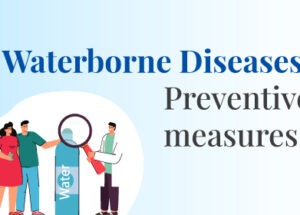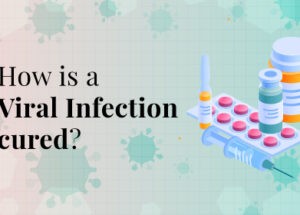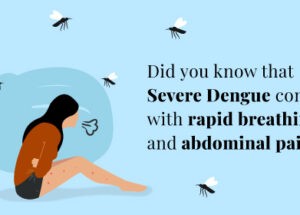Treatments and Procedures
To diagnose infectious diseases the doctors may prescribe the following tests
Laboratory Tests
As infectious diseases share similar symptoms doctors may need to test body fluids. These tests will help identify the disease. Common lab tests done for this purpose are:
- Blood Test: A sample of your blood is taken with a syringe. Then tests are run to identify the disease.
- Urine Test: The patients collect their urine in a plastic container. This container is then submitted to the lab for testing.
- Throat Swabs: Using a sterile swab, samples will be collected from the throat or other moist areas.
- Stool Sample Test: The patient is asked to collect and submit a stool sample.
- Spinal tap: This procedure is used to collect cerebrospinal fluid. The patient lays down on their side with knees pulled up to their chest. A syringe is inserted between the bones of the lower spine and the sample is collected.
Imaging Scans
Scans are sometimes used to accurately diagnose diseases.
Commonly used scans are:
- X-Ray
- Computerized Tomography
- Magnetic Resonance Imaging or MRI
Biopsies
A biopsy test is done by taking sample tissue from an internal organ. Testing this tissue can help reveal the disease afflicting the patient.
Treatments
The treatment for an infectious disease depends on the disease and the type of pathogen causing it. Certain infectious diseases can be treated with drugs. The type of pathogen that caused the disease plays a big part in deciding the drug for treatment.
Few medicine types for treatment based on illness-causing germs are:
1) Antibiotics
Antibiotics are for treating diseases caused by bacteria. The type of antibiotics used for treatment varies based on the bacteria causing the disease. Identifying the bacteria that caused the disease is thus vital for treatment.
One drawback with antibiotics is the risk of overuse. Overuse of antibiotics results in some bacteria developing resistance.
2) Antivirals
Antivirals are effective against virus-caused infectious diseases. Drugs haven’t been developed to treat all virus-caused diseases yet though.
3) Antifungals
The antifungal medication comes in three forms
i) Topical Antifungals: Medication that can be directly applied. It can be on your skin, nails or even inside your mouth. Generally available as ointments, powder, gels etc. Predominantly used as a treatment for skin or nail infections.
ii.) Oral Antifungals: Predominantly used to treat infections in lungs or the mucous membrane. These are medications that can be consumed. It is advised to consume this medication after a full meal.
iii.) Intravenous Antifungals: In this method, medication is directly injected into the vein. The drug is administered using a syringe or an IV line. This is prescribed only in cases of serious infections in the internal organs.
Prevention of infectious diseases:
The most effective method of prevention is vaccination. Vaccination is available against all kinds of diseases. Proper vaccination can prevent the spread of many common infectious diseases like hepatitis etc. Parents must ensure their kids receive all the proper vaccinations at the right time. In case of travel to new places do thorough research. Consult a travel clinic and protect yourself against possible infections.
Other than vaccinations a few best practices to avoid infectious diseases are.
- Always clean your hands with soap. The constituents of soap link to the oils in germs and cause them to burst which effectively kills them.
- While sneezing, cover both mouth and nose. Viruses are often dispersed into the air when we sneeze via the droplets that are released. Hence, to restrict spread is to cover the nose and mouth with a tissue whilst sneezing and dispose of it.
- Regularly disinfect surfaces in the house and office. Germs can remain on certain surfaces for days which increases the likelihood of them spreading to all those who came in contact. Therefore, it is vital that surfaces are cleaned regularly.
- Stay away from objects used by sick people. Although unintentional, individuals who are sick tend to leave pathogens on the things they use. Therefore, it is recommended to not come in contact with those objects.
- Always drink clean water. Water is essential to life but it can also play host to a variety of microbes. Thus, it is recommended that water be consumed only from recommended sources.
- Avoid swimming in contaminated water sources. This is for the same concern as cited in the previous point.
- Never eat or drink items prepared by sick people. They are likely to pass on their pathogens to the food, so it advisable to avoid consuming food or drinks prepared by these individuals.
Life After Contracting an Infectious Disease
Most infectious diseases are cured with proper medications. Yet there are few infectious diseases like AIDS for which cure hasn’t yet been identified. In such cases, the treatment is focused on symptom management. Doctors also try to ensure the infection doesn’t progress further. However, antiviral medications have significantly increased the life expectancy and quality of life for those suffering from it.
The threat of infectious diseases cannot be ignored and a pandemic, like the one we are experiencing at the moment, is always around the corner. A calculated approach and a high degree of vigilance and deliberation are the only ways to keep a pandemic and infectious diseases in general under wraps. As research into pathogens gains more momentum, so will innovations in therapy capable of tackling them. The best way to deal with infections is prevention and so a gentle reminder readers, wash your hands regularly!







